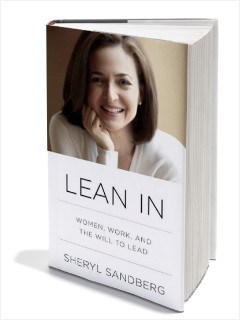I thought that would be a slightly more enticing headline than “The Problem of Sin” which is the title of Chapter 9 in Christ-Centered Biblical Counseling. In this chapter Brad Hambrick and Robert Jones provide eight helpful distinctions about sin that not only help us minister to our wife or husband, but also to understand our own problems and provide suitable remedies.
I’m summarizing the eight distinctions below, but let me make a few observations. First, notice the depth of analysis. This is no shallow, narrow, superficial diagnosis, but a profound and incisive diagnosis of the human condition.
Second, I was impressed with the sympathy and compassion of the authors; their sensitivity to the complexity of the human condition and the multiple factors that contribute to (but don’t excuse) our sin-choices.
Third, I appreciated the refusal to resort to simplistic answers. As our problem is so deep and multi-faceted, the prescription must be equally profound and multi-layered. “A biblical grasp of sin requires greater counseling dexterity.”
Fourth, I loved the practical application. It wasn’t just a litany of our problems, but the authors continually went to the next step of saying, “Therefore, this is how and what we minister to people.”
Fifth, as the authors write in their conclusion, if sin is our primary problem, pastors should be encouraged that they are qualified and equipped to speak into every human problem. The authors are not advocating a “pastors-only” approach to helping people but as they put it, pastors “should lead the way in the field of people helping.”
Sixth, we have a great lab to test our counseling skills in – OURSELVES. As fellow-sinners, one of the best ways to learn counseling is to learn how to counsel ourselves and to understand and overcome sin with all God’s resources.
Seventh, I felt as if I was hearing the Puritans in modern language – and that’s a compliment! Reading this chapter reminded me of the best Puritan works on the nature of sin, and yet these truths were presented in brief and accessible form. And like the Puritans, the authors point us both to Christ as “the only one more powerful than the cause of human problems” and also to heaven where this great enemy of our lives will be no more.
Eight Vital Distinctions
1. The distinction between the sin we commit and the suffering we experience due to external sin.
We not only sin, we suffer the consequences of sin, and we do so in three ways:
- We are part of a fallen, cursed creation.
- We are sinned against by others
- We reap the consequences of our own sin.
2. The distinction between sin as our inborn condition and sin as our behavior
Not all sin results from deliberate choices for known evil over known good. We must recognize that sin is not just an act or a thought but an inner disposition or state.
3. The distinction between sin as unbelief and sin as rebellion
Here the authors recognize that while some sin is committed our of stubborn and militant rebellion, others are the result of fear, or unbelief, or even some educational disadvantage.
4. The distinction between sin as desiring forbidden objects and sin as desiring good things too much.
This doesn’t require any explanation, but here’s a thought-provoking comment from this section: “In our experience, most counseling cases today involve good desires that have become overgrown…Our overgrown desires are modern synonyms for idolatry and our aim in counseling is to encourage right worship, and not just eliminate bad behavior” (p. 146).
5. The distinction between sin as internal (concealed) and sin as external (revealed).
“Putting off internal sins calls us to put on Christ-centered attitudes by repenting in private prayer. Putting off external sins calls us to put on Christ-centered actions by repenting in private prayer and then confessing to those we have sinned against.”
6. The distinction between sin as commission and sin as omission.
The authors argue that “we sometimes unwisely focus on commission sins and forget about omission sins, the ones that can often hurt even more deeply.” They also point out that unless sins of omission are dealt with, they almost always end up as big sins of commission.
7. The distinction between sin as rational and sin as irrational.
Recognizing the rational and irrational nature of sin can help us help others by warning us against trying to explain all behavior, and also reminds us that change requires more than just accurate information.
8. The distinction between sin as degenerative and sin as self-contained.
Although we often view sin as self-contained, point-in-time bad choices with no interconnection or momentum, sin is more like a cruel taskmaster that victimizes and controls, or like a disease that takes over our whole system.
Previous Posts in this Series
Introduction: Christ-Centered Biblical Counseling
1. John Piper on Biblical Counseling
2. Charity and Clarity in Counseling
3. The Counselor’s Role in the Holy Spirit’s Counseling
4. Is the Trinity Relevant in Counseling
5. Counseling and the Grand Narrative of the Bible
6. Biblical Counseling and the Sufficiency of Scripture
 Sheryl Sandberg is the COO of Facebook and the first woman to serve on Facebook’s board. Previously Chief of Staff for the US Secretary to the Treasury and Vice-President at Google, she has also made the Time 100 list of the most influential people in the world.
Sheryl Sandberg is the COO of Facebook and the first woman to serve on Facebook’s board. Previously Chief of Staff for the US Secretary to the Treasury and Vice-President at Google, she has also made the Time 100 list of the most influential people in the world.